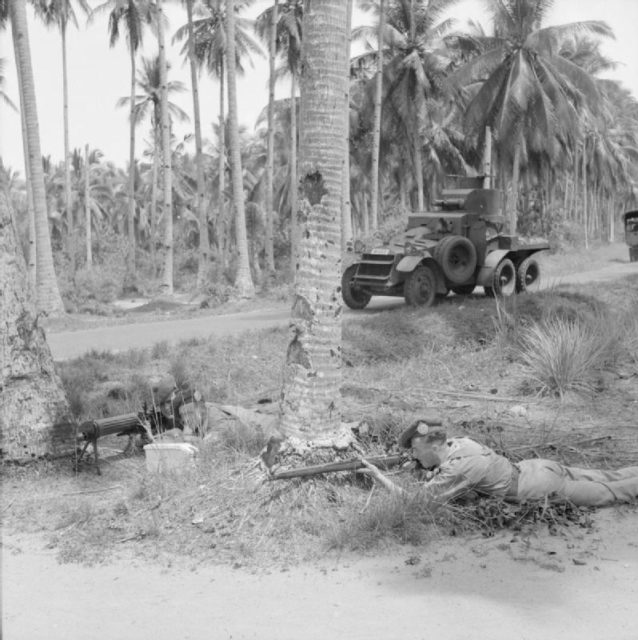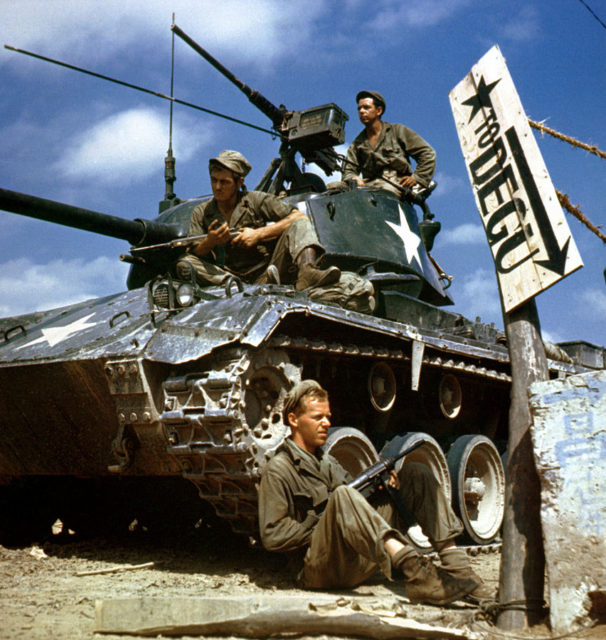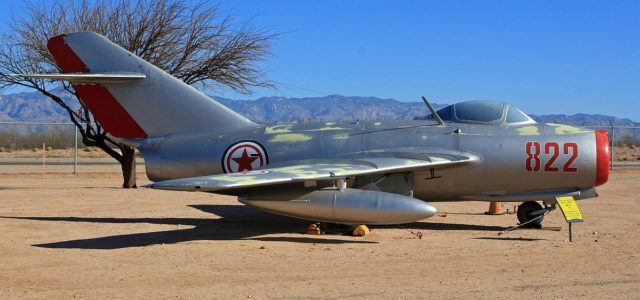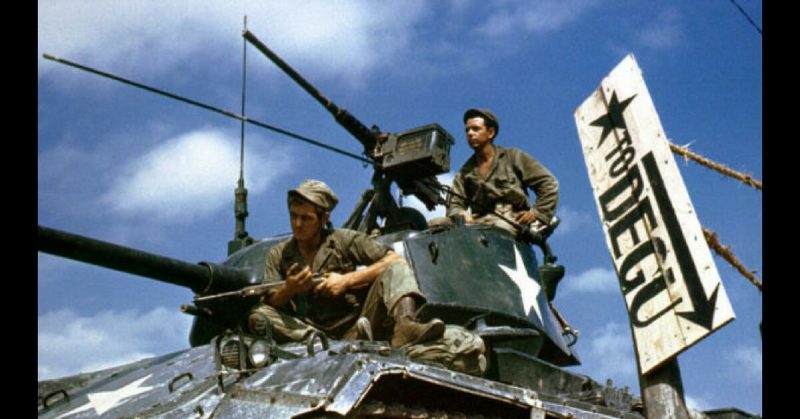Kenneth Muir was a 38-year-old major in the 1st Battalion, The Argyll and Sutherland Highlanders who gave his life during the Korean War so that his men could live. He was awarded the Victoria Cross, and there can be no doubt he deserved it.
The conflict came just five years after the end of WWII and is usually referred to as the forgotten war. It was a futile conflict that shaped the political destiny of the Korean peninsula. It left the north to starve, freeze and live in fear of a power-crazed family while the south rose to become a model of democratic development – at least after the 1980s.
The fighting began in June 1950 after the country was split in two along the 38th parallel. The Communists, with support from China and Russia, controlled the North while the United States of America and the United Nations gave their backing to the south.
When the conflict ended three years later, the divide remained in the same place. However, at separate periods nearly the whole peninsula had been under the control of either the Communists or the democratic forces.
Out of 68,000 British soldiers who fought for freedom in a foreign land, 10,000 of them were Scottish. Kenneth Muir was a man determined to do his duty, both to his men and to his country and his final words were ones of fierce determination never to let the enemy capture Hill 282.
The Battle of Hill 282 occurred on September 23, 1950. It involved units from the 1st Battalion Argyll and Sutherland Highlanders, who were operating as part of the 27th British Commonwealth Brigade.

The day before the engagement, which was near the Naktong River, the Battalion moved up to attack the Hill near Songju. Before daybreak on the 23rd, B and C Companies climbed for an hour to get into position before surprising the North Korean forces with an attack and seizing the hill.
As C Company moved away from the area and towards Hill 388 to launch another attack, they encountered enemy forces moving towards Hill 282. After sending artillery and mortar fire screaming down upon the British troops all morning, the North Koreans increased the intensity of their action. Then, inexplicably, American artillery withdrew and the five US tanks left to support them could not fire on the attackers because of the inhospitable terrain.
The Argylls called for an airstrike on Hill 388, which was still held by the North Koreans. Instead of being their saviors, the fire support turned into a burning nightmare for the Scottish men.

Despite displaying white recognition panels, the flight of F-51s bombed the wrong hill after Captain Radcliff of tactical air control failed to establish radio contact with them. The result was a hailstorm of napalm, and 50 caliber machine-gun fire.
Although the attack did not last long, the damage had been done. The survivors of the napalm and cannon barrelled down the hill to escape the carnage.
Muir watched the flames on the crest of Hill 282 die down and realized that a few wounded men still held the top of the hill. He gathered 30 men and led a counter-attack on the crest. His VC commendation in the London Gazette read that ‘it was entirely due to the courage, determination and splendid example of this officer that such a counter-attack was possible.’
Other men might have thought their duty done at that point, but not Muir. His next thought was for the wounded men scattered across the hill, and he wanted to give them enough time to be evacuated safely.

The Scot was outnumbered and under fire from heavy automatic weapons the whole time. He and his men were low on ammunition, and when Muir finally ran out of bullets he picked up a two-inch mortar and fired that at the enemy.
Muir continued until he was hit from two bursts of fire, which mortally wounded him. The last paragraph of his citation states: “The effect of his splendid leadership on the men was nothing short of amazing and it was entirely due to his magnificent courage and example and the spirit which he imbued in those about him that all wounded were evacuated from the hill, and, as was subsequently discovered, very heavy casualties inflicted on the enemy in the defence of the crest.”
The British casualties were 17 dead or missing and 79 wounded – 60 as the result of friendly fire.
